| All Artists: Christophe Rousset, Nicolas Testé, Anna-Maria Panzarella, Olivier Dumait, Robert Getchell, Evguenyi Alexiev, Emiliano Gonzalez-Toro, Anders J. Dahlin, Les Talens Lyriques, Jean-Baptiste Lully, Anna Maria Panzarella, Lausanne Opera Chorus, Evgueniy Alexiev, Anders Dahlin, Jean Baptiste Lully, Monique Zanetti Salomé Haller Title: Lully - Roland / Testé · Panzarella · Dumait · Zanetti · Les Talens Lyriques · Rousset Members Wishing: 1 Total Copies: 0 Label: Ambroisie Release Date: 7/13/2004 Album Type: Import Genre: Classical Styles: Opera & Classical Vocal, Historical Periods, Baroque (c.1600-1750) Number of Discs: 3 SwapaCD Credits: 3 UPC: 3760020170493 |
Search - Christophe Rousset, Nicolas Testé, Anna-Maria Panzarella :: Lully - Roland / Testé · Panzarella · Dumait · Zanetti · Les Talens Lyriques · Rousset
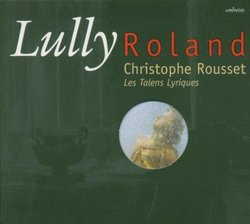 | Christophe Rousset, Nicolas Testé, Anna-Maria Panzarella Lully - Roland / Testé · Panzarella · Dumait · Zanetti · Les Talens Lyriques · Rousset Genre: Classical
|
Larger Image |
CD DetailsSimilar CDsSimilarly Requested CDs
|
CD ReviewsFrench Baroque opera at its best Brad Alan Deamer | 02/05/2005 (5 out of 5 stars) "Christophe Rousset and Les Talens Lyriques recorded Lully's Persee a couple of years ago (for another label, Astree). Persee was good, but this new recording of Roland is even better--perhaps because Roland is the stronger work, both musically and dramatically. It was supposedly Lully's favorite among his own operas, and this performance shows why.
Despite its large cast and expansive format (a prologue plus five acts), the opera tells a simple, straightforward story (based, of course, on Ariosto's Orlando furioso). The hero Roland is obsessively in love with Angelique, who prefers Medor. When Roland just won't take "no" for an answer, Angelique finally agrees to meet him for a tryst in a secluded rural spot. Instead, she runs off with Medor. Roland shows up for the rendezvous, discovers that Angelique has betrayed him, and goes spectacularly mad (interestingly, his insanity is depicted more via the orchestra than vocally). In the last act, a "good fairy" named Logistille restores Roland's sanity; she, a personification of Glory, and a chorus of the Shades of Heroes of the past all urge Roland to dedicate himself to glory, rather than to love. The music is always attractive, but it has isolated moments of almost supernatural beauty. One of these occurs at the end of Act 3, when Angelique has decided to marry Medor and run away with him. She leaves the stage to make the preparations, and her subjects (Angelique is the Queen of Cathay) hail Medor as their new king and congratulate him at length on his successful wooing of Angelique. This all takes place to a magnificent Chaconne, first played by the orchestra alone, then repeated by the chorus and various solo voices. The sequence lasts eleven minutes in this performance, during which "nothing happens on stage" (except for the dancing, which we can only imagine while listening to this recording)--and yet it is mesmerizing, because of the way Lully spins out and develops his melodies. Another wonderful sequence occurs in Act 5, when Roland's sanity is restored via sounds of ravishing beauty. Rousset and his instrumentalists attack the score with immense enthusiasm. All of the singers, even though heard in bit parts, are excellent (as is usually the case in recordings of this repertory, there is some doubling and even tripling of roles). Because the French were not too keen about castrati, all of the male parts are written for natural male voices. Roland is a bass, and Nicolas Teste is superb in the part, sounding heroic, ardent, and demented by turns. The recorded sound is also first-rate, detailed and immediate. The handsome booklet contains the libretto and translation, along with a lot of useful information about the work. My one reservation concerns the packaging. Once you've removed the shrink wrap, you have, essentially, a long strip of cardboard with three plastic trays (containing the CDs) glued along it. This folds up to create the package. But the cardboard looks and feels flimsy; one suspects it could easily be soiled or damaged. You're supposed to tuck the (thick) booklet back inside the folded strip, but of course (once the shrink wrap is gone) there's nothing to prevent the booklet from falling out. Such a fine recording really deserves a more substantial presentation (I recommend the format that Harmonia Mundi sometimes uses for such multiple-CD sets: the same sort of cardboard folder for the CD trays, but placed inside a sturdy hinged box). In short, this is a must-but for anyone who is interested in French Baroque opera." |

 Track Listings (15) - Disc #1
Track Listings (15) - Disc #1
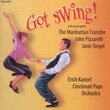


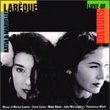
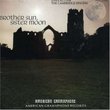
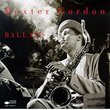

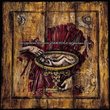



![Across The Universe [Deluxe Edition]](https://nationalbookswap.com/cd//m/51/1251/1241251.jpg)
